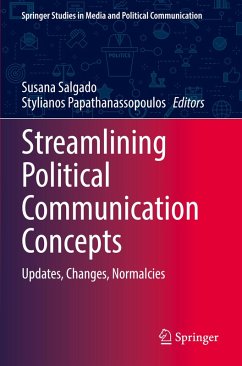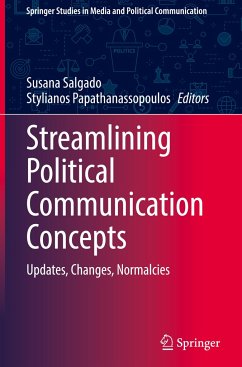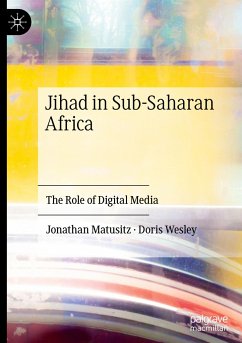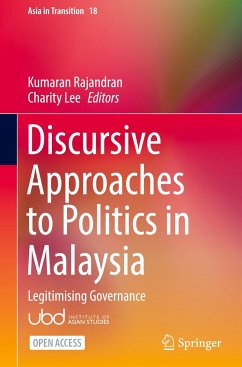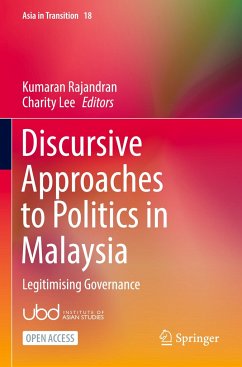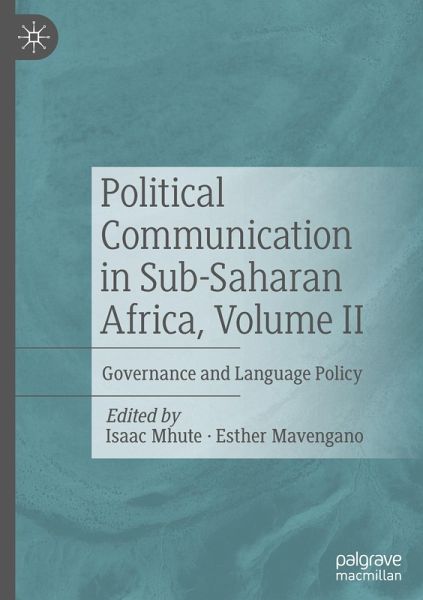
Political Communication in Sub-Saharan Africa, Volume II
Governance and Language Policy
Herausgegeben: Mhute, Isaac; Mavengano, Esther

PAYBACK Punkte
46 °P sammeln!
This book is one of two volumes that examines the role of political communication, media and language in transforming politics, governance and democracy in sub-Saharan Africa. Interdisciplinary in approach, this second volume analyses themes including political advertising and rhetoric, activism, populism, fake news, and political violence. Combining theoretical work with individual case studies on countries including Tanzania, South Africa, Zimbabwe, Nigeria and Ghana, the book highlights the important connection between political communication and governance, and the ways in which language r...
This book is one of two volumes that examines the role of political communication, media and language in transforming politics, governance and democracy in sub-Saharan Africa. Interdisciplinary in approach, this second volume analyses themes including political advertising and rhetoric, activism, populism, fake news, and political violence. Combining theoretical work with individual case studies on countries including Tanzania, South Africa, Zimbabwe, Nigeria and Ghana, the book highlights the important connection between political communication and governance, and the ways in which language reforms can help to overcome challenges related to public administration. It will appeal to all those interested in public policy, public administration, governance, and political communication, as well as linguistics, media studies and African politics.




